|
5 stars
The future is hopeful. And it's being led by our youngest generation. Walk in the steps of those who protested in 1903 in the March of the Mill Children and see where the fight continues on in those who participated in the George Floyd protests... as well as all of the ones that came between. 15 powerful stories. 1 nation. Organization of stories: ★★★★★ Resonance: ★★★★★ Enjoyment: ★★★★★ When you think of a line of protesters, who do you picture? How old are they? If you're like me, the group of people attending a social protest is a varied group in my imagination but, in general, they have one thing in common—they're adults. Adults tend to have louder voices, more ability to self-advocate, and more experience to draw from in an organized space. Right? In Kids on the March, you'd be wrong. Delving into 15 stories of kid-led and kid-focused protests for social justice, this slim volume packs a very memorable punch. When the youngest of us know what is right, and what is wrong, and they decide to speak up... their voices are loud enough to be heard. And they have a right to their space. I devoured this collection. There's no other word for it. Author Michael B Long is on to something when he pulls us along on a journey through the twentieth century's most active youth-led protests—and the changes they demanded. From young children desperate for more ethical work hours in 1903 to the 1951 Strike for a Better School that led to the Brown v. Board of Education titan of social justice to the more modern March for Our Lives and the Black Lives Matter protests.... this is a powerful body of work. And an inspiring one. "Let us pray with our legs. Let us march in unison to the rhythm of justice, because I say enough is enough." -Demetri Hoth, Senior at Marjory Stoneman Douglas High School (2018) I recommend this to all, especially my fellow Americans. Many thanks to Algonquin for Young Readers for my copy in exchange for an honest review.
0 Comments
5 stars
A celebration of girlhood from all around the world told from the girls themselves... a beautiful, moving, and heartwarming collection of what it means to be female across the globe. Book construction: ★★★★★ Enjoyment: ★★★★★ Brought about by freelance journalist Masuma Ahuja's series featured on Washington Post's The Lily, which featured a few samples of girls growing up throughout the world, this work broadens the original grouping of young girls and their experiences into one collection spanning 27 countries and including 30 girls and their stories. I thoroughly enjoyed this collection. Teenagers, and female teens in particular, experience certain life moments across all borders. And yet their individual experiences also showcase startling differences across countries, socioeconomic classes, racial divides, and the ever-present gender divide. Girlhood: Teens Around the World in Their Own Voices attempts to showcase what girls' lives are really like—told in their own words. I think it delivers. From an Argentinian football player with a passion for play to a 16-year-old Cambodian scholarship student learning in Australia (and more), this collection provides intimate snippets of 30 lives. Some are more lighthearted than you'd expect. Some are much darker. Some showcase the resilience of womanhood and others highlight the still too large gaps between the female and male experience. One of my favorites was Jocelyne's story—mainly because she mentioned an interest in ASMR (a YouTube phenomenon that involves sensitive sounds and microphones, google it!). Jocelyne and I have that in common, but her life in the Democratic Republic of the Congo is worlds away from mine in the U.S. I'd encourage all to check out this collection. It's a quick read due the format of blurbs and diary entires, but a powerful and heartwarming one all the same. Girl power! Thank you to Algonquin Books for my copy in exchange for an honest review. 5 stars
A compelling must-read for kids, young adults, and adults! Body Talk is the kind of no-holds-barred, thoughtful compilation that I wish I had access to in school. It's time to demystify our bodies and break down the barriers of ignorance and taboo surrounding our bodies and our physical differences. Concept: ★★★★★ Writing: ★★★★ Teachings/Knowledge: ★★★★★ Enjoyment: ★★★★ Why do we give our bodies such a hard time? Why do signs of physical difference or ability mark some of us as "Other?" At the end of the day, why are we so hard on each other and on ourselves? These are just a few of the questions that Body Talk raises, and they're great starting points. I'd go so far as to the say that this anthology could be considered a primer for students in health class, because honestly there are things in here that kids (and us adults!) should be thinking critically about. What is the correct way to refer to a disabled person? Where did the phrase "body positivity" come from, and is it the inclusive term we think it is? Why is a woman's pain treated as insignificant in a doctor's office and often misdiagnosed? Did you know that young men should be aware of a specific kind of cancer? Some of these tales come from a place of education—the author is telling us about a subject in an an almost impartial manner, and it works. Some of these stories are bullet points, some are from medical professionals. Other tales come from places of pain and joy—authors who live on the other side of the social norm due to their physical form—which is outside of their control—and they're sharing their experiences with themselves on a personal level and with their surroundings. These are the stories that I will remember the most, because some of them cut deep and others highlighted some of my own biases, fears, and judgments. We all have conceptions of physicality and what it means to have a "normal" body. What many of us don't think about is how it feels to live on the other side of that line, and how our "normal" ideas can be damaging, ignorant, or at times just confused. This book is covers a LOT of topics, and everyone could read these stories and get something different out of them. We've got stories on disabilities, yes, but also on body size and shape, gender, female issues and male issues, stigmas in different communities, and windows into other people's experiences. A valuable book, and worth a read to all of us with bodies to care for and love. (So... all of us, unless the person reading this is an embodied spirit or cyborg, in which case you've got your own issues.) Thank you to Algonquin Books for Young Readers for my copy in exchange for an honest review. 3.5 stars
What an interesting and thoughtful memoir / self-help guide. Really sticks with you at points. Pacing: ★★★ Chapter flow: ★★ Enjoyment: ★★★ 1/2 I initially rated this 4 stars when I finished it, but once the high of the last few sections wore off, I realized that while there were parts I loved there were also some significant clunks that I...didn't. Untamed is an interesting nonfiction read, in a genre hybrid that I would classify as memoir meets self-help book. This is obviously Glennon Doyle's niche, as her previous books sound like they fit that mode as well (I haven't read them, but they are mentioned often in this one). In Untamed, Glennon is telling us the radical moment that changed her life: as a fully-formed, middle-aged adult, married with three kids and with a career as a Southern Christian motivational speaker, Glennon realizes in an instant that she is actually attracted to women, and she finds her match across a (semi) crowded room—just like a fairy tale. Thus begins the moment that radically alters her established life and leads her on the path to acceptance. Welcome to Untamed. What was truly amazing about this story was the love in its pages. It is clear that Glennon loves, and those around her also love. I loved, even, when it came to hearing about her children, her path to true acceptance as a gay woman, and her intimate decisions when it came to self awareness and reflection. As a woman reading the story of a woman coming into her own, both sexually and as a woman who'd let the cultural systems break her into the box they'd predetermined for her, I loved this book. Where Glennon lost me was in the structure of Untamed itself. I am really, really not a fan of non-linear fiction or nonfiction. This book had us in one timeline (Glennon realizing her true love at a writer's conference) and then it went back in time to the before (Glennon as a child)—that transition was fine, I've read many a book like that before. But then, two pages later, we would be in a new chapter break and that new break would be in the future (Glennon now, with her wife) and both the past the present are gone. Then we would go back to a slightly different present or past. Ping pong, ping pong. Coupling that fact with the fact that each chapter varied in length from 2 pages to 8 pages, on average, and it was on the wrong side of confusing for me. I also struggled with this book's strong metaphysical overtones (the "Knowing" and her faith), but to a much lesser degree than the nonlinear transitions—just placing it here for those who also might have felt the same way. Overall, a thoughtful and memorable read! 4 stars
What a compulsively readable nonfiction book on a topic that I would have never read without the hype. Readability: ★★★★ Pacing: ★★★ Boring?: at times, but surprisingly not for most of it Enjoyment: ★★★★ The Devil in the White City is a book that is—exclusively and extensively—focused on one topic: The 1893 Chicago World's Fair. In particular, on two white men of relative means who represented two very different faces to Chicago. One face, wealthy architect Daniel H. Burnham, who was the driving force behind the fair's creation. The other face, blue-eyed middle class conman H.H. Holmes, one of America's most memorable and horrifying serial killers. Gripping concept? YES. One the one hand, we're following Chicago's brash attempt to beat all the global odds stacked against them and host an international World's Fair to rival the previous one in Paris...where they unveiled the architectural feat, The Eiffel Tower. On the other hand, we're following the disturbing rise of H.H. Holmes and his aptly-described "demonic" concept for a murder hotel essentially across the street from the future site of the World's Fair. Holmes was a murdering soul at the start, but his luck at the fair led him to new heights of horror in a stunning twist of fate. I found the detailed account of these two men and their stories to be extremely gripping. Considering this was nonfiction down to the dialogue used, I was amazed at how quickly I flew through this story. It's well researched and well told. However... I wish this story had been more all-encompassing in its quest to tell the tale of the World's Fair. This is essentially the lens of one white man telling the two intersecting stories of two other white men...and in an uncomfortable way, it feels like it. I wanted to know more about the minority groups that were involved in the fair—especially the outdated and racist practices of the Midway, which was essentially a "zoo" of international races and cultures—and their struggles. I also wanted to know more about the women involved as opposed to the borderline footnotes that existed in the story—one woman was chosen to design one of the buildings at the fair! And yet she is barely discussed...even though her plot line is clearly an interesting story of the glass ceiling at work. And, taking out both the minority groups and the women, we did not fully dive into the class inequalities at play either. The labor unions were discussed at length (mainly as irritants to Burnham) but the stories of the poor themselves were not handled as fully as I was expecting. So, overall, a good book. I just wish there had been more of a balanced lens, even though I understand the argument that there is only so much room in a book and it's impossible to cover it all. 3.5 stars
Oof. No one is more surprised than I am...I really struggled to finish this, and struggled even more to enjoy the reading experience. Concept: ★★★★★ Actual highlighting of genius women: ★★★ Pacing: ★★ The Genius of Women was a nonfiction book given to me for review, and I immediately was excited to open it up. It's a nonfiction book dedicated to sharing the stories of women overlooked throughout history! Yes! Amazing! Let me learn about these women! The first few chapters of this book got to me—they had valid feminist points, they highlighted several women from history that I had never heard of, and they incited a fire in me to learn more. I wanted to learn their stories, feel their histories, and know where their accomplishments stood today in 2020. I wanted more! But then...the chapters started to feel the same. We'd have a killer chapter title. Then we got a great bite-sized nugget of information about a historical/current woman genius who was terribly under-recognized by the patriarchy. And then, very quickly, we abandoned her. It became a personalized essay on behalf of the author about her experiences and strong (strong!) opinions on repeat about all that is wrong in today's society as it relates to women. This would have been fine-ish—let's be real, I wanted to raise these women UP, not abandon their narratives for opinion promotion, so it wasn't "fine" to me personally—but the opinions and personal anecdotes felt repetitive. I'm a proud woman who promotes female rights and am aware of what's wrong with the world's lens of men first, women second. I didn't need those issues shoved at me at every turn. Maybe, if you're somehow new to gender inequality, it was worth the hammered approach? I guess, if you boil it down, I wanted the lens of this work to focus on the women and their accomplishments as opposed to using them as brief touchstones and a launch pad to discuss the gender imbalance in all things through the highly personable layer of author opinion. This was probably a "me" issue as others have reviewed this work much more positively, but I can't ignore my thoughts. I realize that my review falls into the trap of what the author herself mentions...that when a woman decides to tout accomplishments and opinions, the reaction to that is to say it's not enough, too much, negativity, etc. I agonized with whether to say my feelings on this because I didn't want to become one of the negative voices being part of the problem. But in this case, it's still important to be honest. I didn't love this. Thank you to Dutton for a copy of this title in exchange for an honest review. Blog | Instagram 3.75 stars
"Yes, we are witches, and we're hunting you." What an impressive and readable collection of essays. Lindy West, the author of Shrill, has returned and she's ready to share some facts and clapbacks. "In a laugh-out-loud, incisive cultural critique, West extolls the world-changing magic of truth, urging readers to reckon with dark lies in the heart of the American mythos, and unpacking the complicated, and sometimes tragic, politics of not being a white man in the twenty-first century. She tracks the misogyny and propaganda hidden (or not so hidden) in the media she and her peers devoured growing up, a buffet of distortions, delusions, prejudice, and outright bullsh*t that has allowed white male mediocrity to maintain a death grip on American culture and politics-and that delivered us to this precarious, disorienting moment in history." I have to be honest, these essays were at times hard to read--not necessarily due to the author, but due to the wounds that they reopened for me. Being a woman in today's world isn't easy, and we're still fighting to be heard. Being a woman in America...yeah, it's rough, especially given the current political leader. These essays have receipts. They have anecdotes. And they'll throw you into each and every one of the political turmoils of the now. The title The Witches Are Coming is derived from West's analysis of Trump's frequent use of the phrase "witch hunt." While Trump is determined to use it as a label that is pro-men, West is quick to remind us that witches were always women who spoke out and had agency, and the phrase "witch hunt" has historical roots in female oppression...not the other way around. So for West, yes, the "witches" are coming. And it's time for a reckoning and reclaiming of the term. Also, a side note: the chapter on Adam Sandler is inspiring. I, too, hate Adam Sandler for what he represents. West gets it. You tell 'em, girl. Thank you to Hachette for this ARC in exchange for an honest review. |
Amy Imogene ReadsJust someone looking for her own door into Wonderland. Categories
All
Archives
May 2023
|
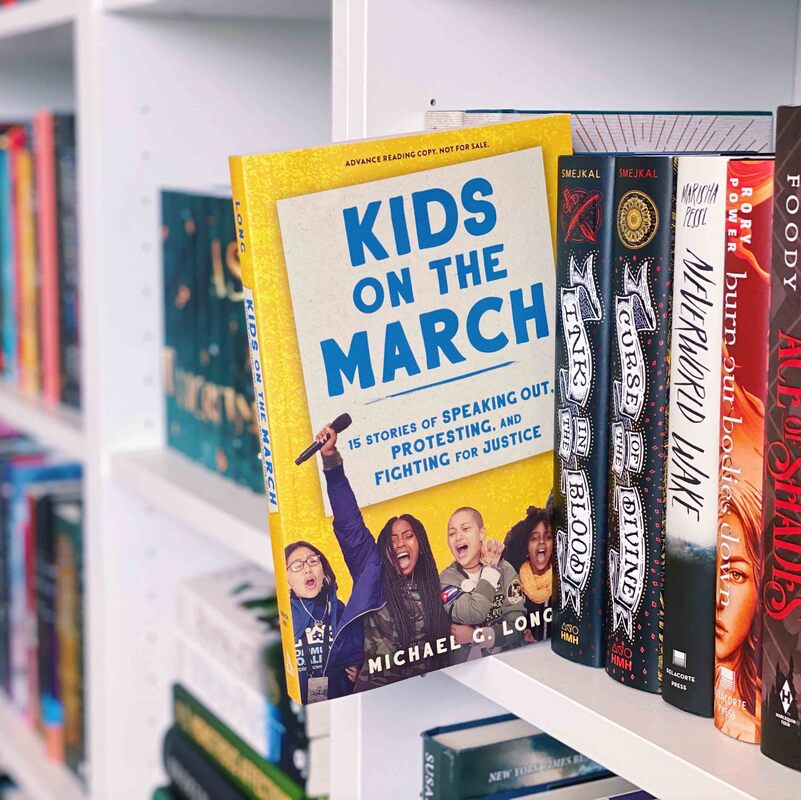
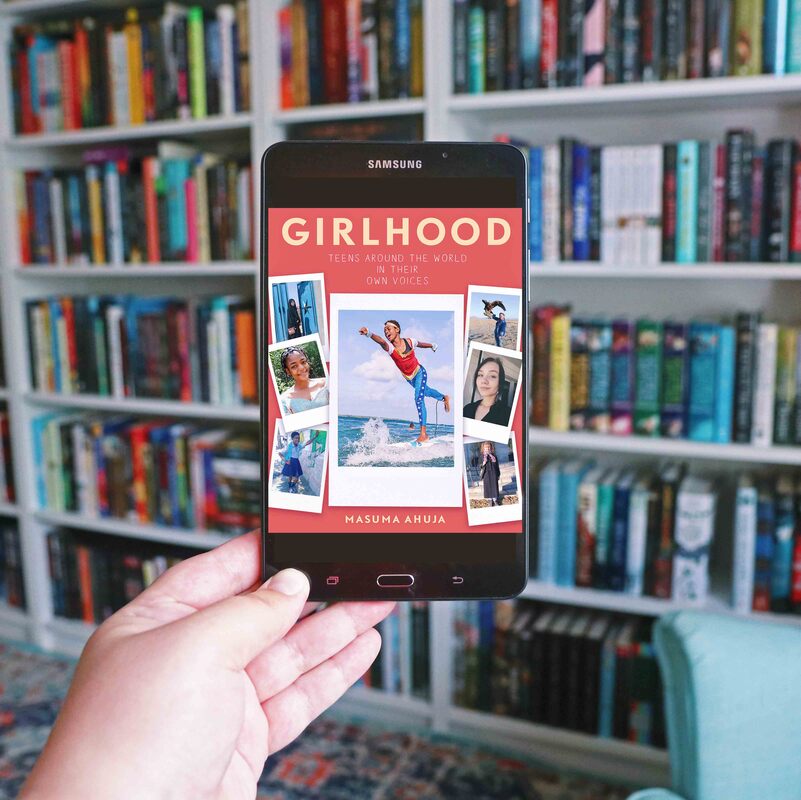
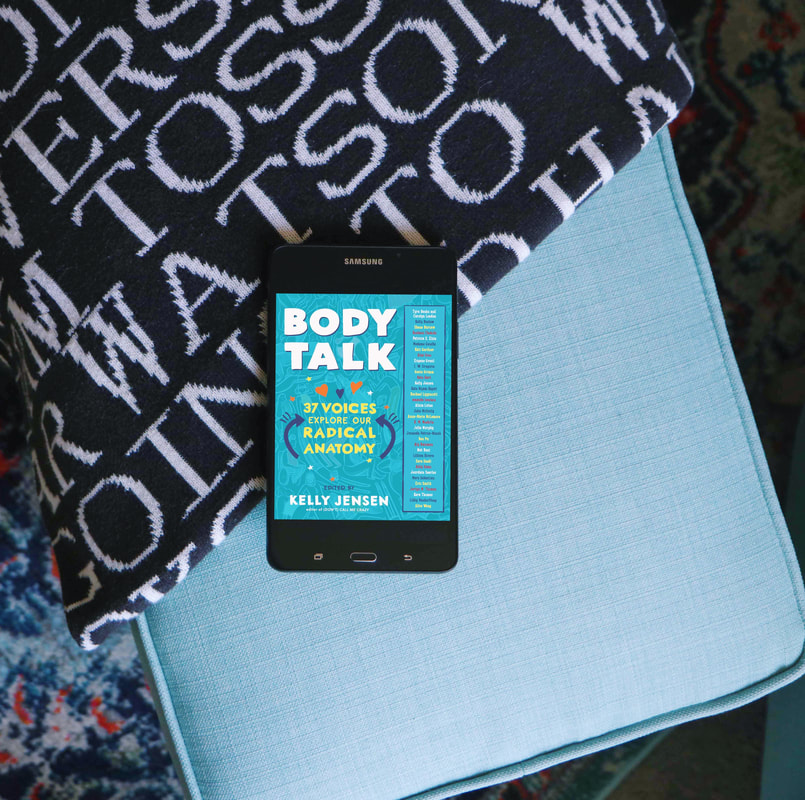
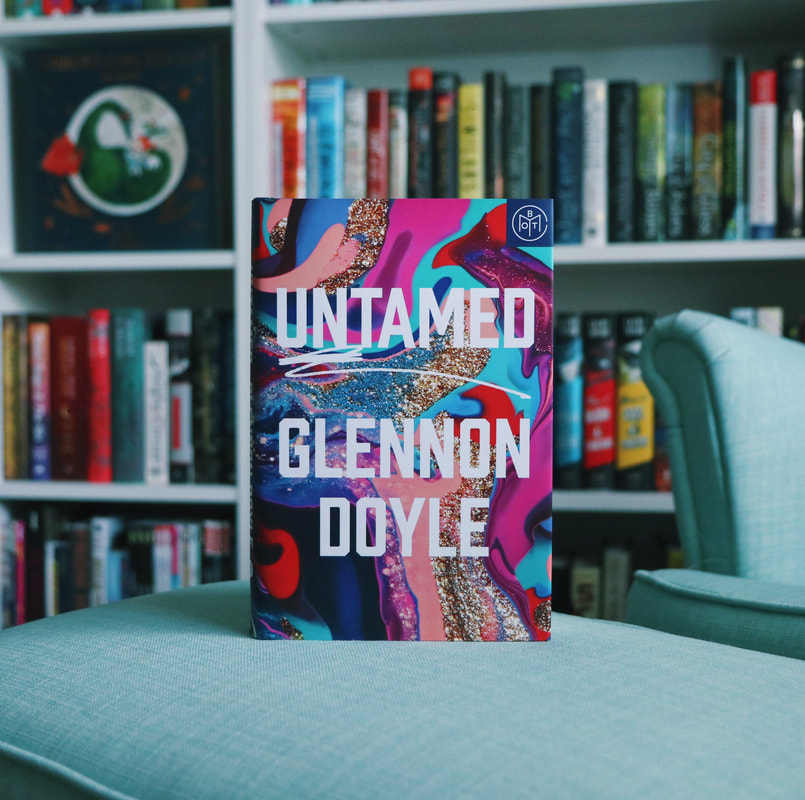
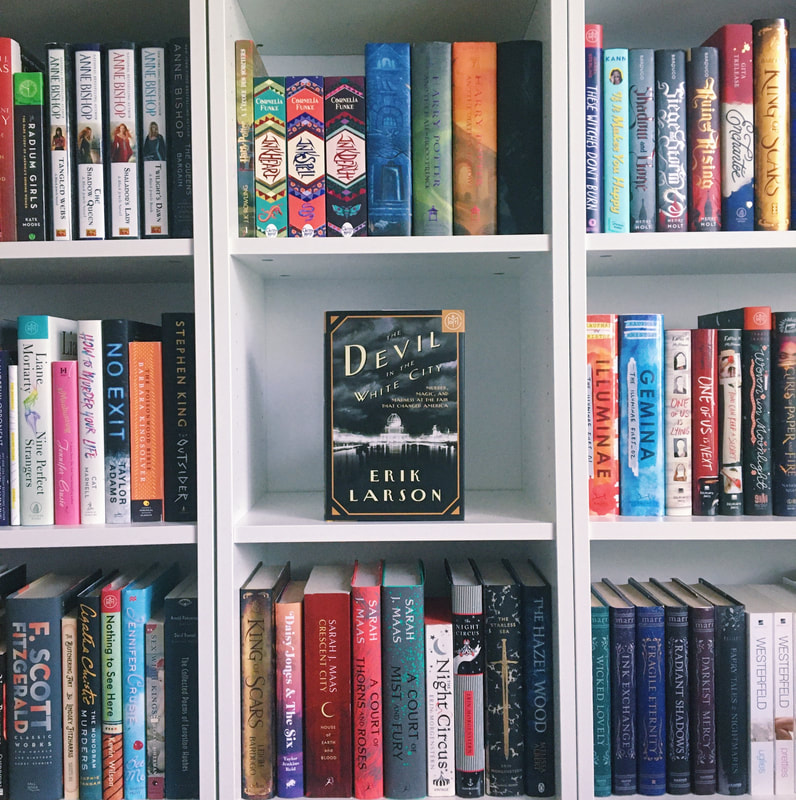
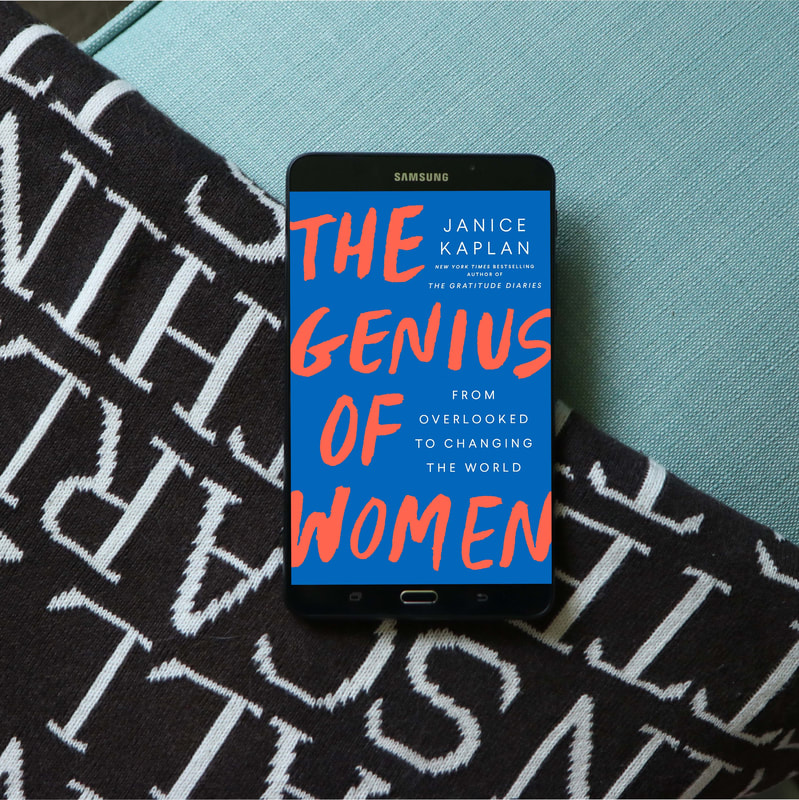
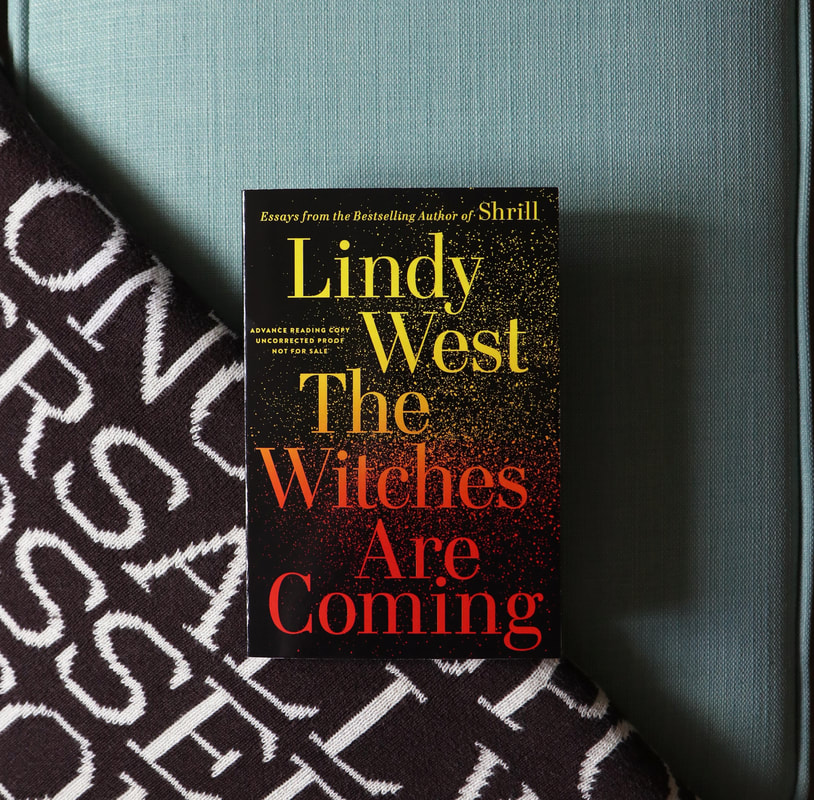

 RSS Feed
RSS Feed
